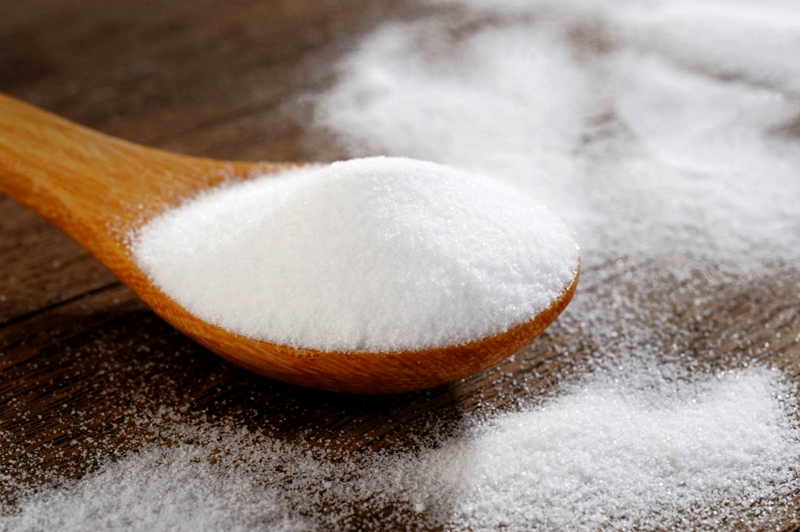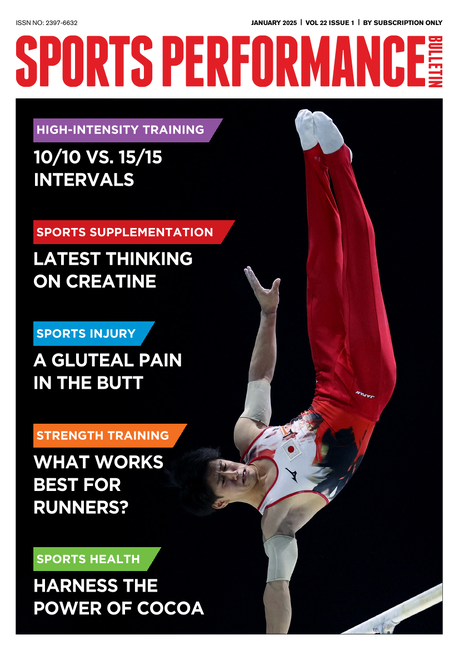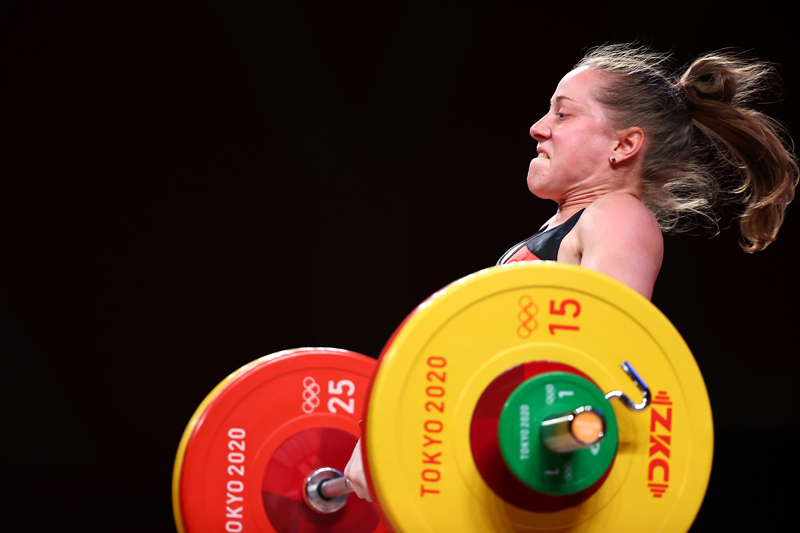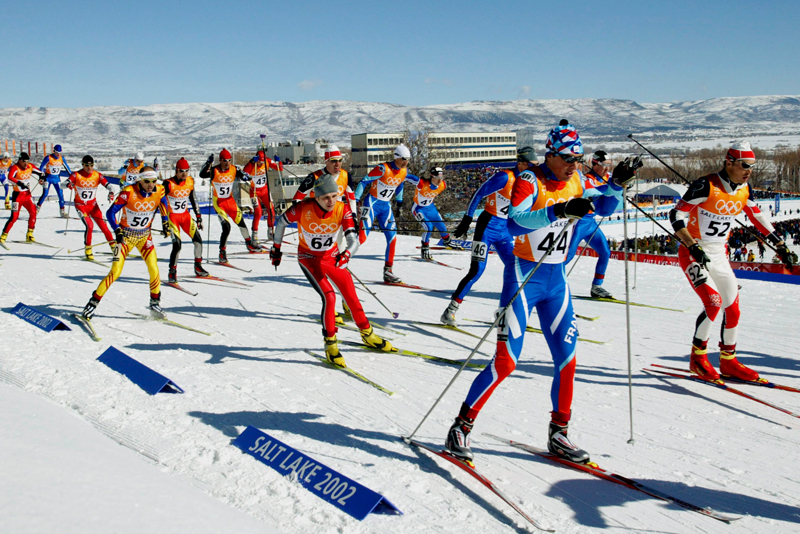You are viewing 1 of your 1 free articles. For unlimited access take a risk-free trial
Betaine: power to the people

Andrew Hamilton looks at a relatively unknown supplement called betaine, and explains why its use by some athletes seems supported by solid science...
Supplements claiming to enhance sport performance have never been so popular. However, while the marketing rhetoric is attractive, the efficacy of many of these products has not been rigorously investigated in research studies. Indeed, in the past 30 years, only a few supplements such as creatine, caffeine, bicarbonate and carbohydrate have stood up to proper scientific scrutiny. Even then, the beneficial use of these supplements is predicated on the basis that the dietary fundamentals are sound.Unfamiliar nutrients
While many sports supplements on the market lack sufficient evidence to recommend their use, there occasionally instances of nutrients that actually do have solid evidence in favor of their use, and which don’t make the headlines. One nutrient that falls into this category is betaine, for which there is reasonably robust evidence of a performance enhancing effect.Betaine (pronounced ‘beta –eene’ and also known as trimethylglycine) is a natural compound found in plants and animals, and is a significant component of many foods, including wheat, shellfish, spinach and sugar beets – see table 1. The main physiological function of betaine in humans and animals is as an ‘organic osmolyte’, which basically means that it protects cells under stress. It also plays a key role in a very important biochemical process called ‘transmethylation’, which explains why consuming extra betaine can help protect against some metabolic diseases – something we’ll return to shortly.
Table 1: Some good food sources of betaine(1)
| Food item | Betaine content |
| mg/100 g | |
| Wheat bran | 1339 |
| Wheat germ | 1241 |
| Spinach | 600-645 |
| Beets | 114-297 |
| Pretzels | 237 |
| Shrimp | 219 |
| Wheat bread | 201 |
| Crackers | 49-199 |
Early research – betaine and health
Much of the very early research into betaine focused on its health effects, particularly in animals. For example, because betaine is a substance that can prevent or accumulation of fat in the liver, scientists have studied healthy and diabetic animals consuming high-fat diets. Inevitably (as with humans), these diets lead to the development of non-alcoholic fatty liver disease. However, when these same animals were given supplemental betaine, the accumulation of liver fat was either reduced or prevented(3-5).Humans with diabetes also suffer from fat accumulation in the liver, and early studies showed that dietary betaine improves liver function(6-8), including a slight decrease in blood cholesterol, a reduction in liver size, and better diabetic control. More recent studies carried out in the early 2000s confirmed the beneficial effects of supplemental betaine in humans with non-alcoholic fatty liver disease – an effect that scientists believe is down to the ability of betaine to donate methyl groups during transmethylation(9-11).
Moreover, a number of human studies in the 1950s indicated that betaine supplementation may help improve the profile of blood lipids in arteriosclerosis(12,13) (a condition where the blood vessels become narrowed due to fatty deposits on the vessel walls – dramatically increasing the risk of a heart attack) and even reduce the risk of death as a result(14). Interestingly, these results are consistent with a 2003 study on athletes who were supplemented with betaine before exercising in the heat(15). Compared to no betaine supplementation, giving betaine significantly reduced the levels of HDL (‘bad’) cholesterol in the blood of the athletes within 2 hours.
Betaine and performance
Any health benefits associated with a sports supplement are very desirable; after all, most athletes regard (or should do!) good health as integral to their short and long-term performance. However, a sports supplement can only be classified as such if it does actually enhance performance, so let’s look at the evidence for this.Despite the growing body of evidence for the health benefits of betaine, and a 1999 study suggesting that betaine could enhance the performance of racehorses(16), it wasn’t until 2009 that scientists began to investigate its potential to enhance exercise performance in humans. In one study, 24 male subjects were randomly assigned to one of two groups to investigate the effects of 15 days of betaine supplementation on muscle endurance, power performance and rate of fatigue in active college aged men(17). These groups were:
- A betaine group who took 1.25g of betaine twice per day for 15 days.
- A placebo group who took an inert placebo twice daily.
The results showed that while there was no difference in bench press performance or anaerobic power, the number of repetitions performed in the squat exercise by those taking betaine was significantly greater after 7 and 14 days of supplementation (see figure 1). The researchers also noted that the quality of the repetitions in the betaine group were markedly better than in the placebo group.
Figure 1: Total number of repetitions performed at 90% of peak power in the squat exercise(17)

NB: PL = placebo; BET (black bars) = betaine
These results didn’t go unnoticed and the following year, another study also looked into the effects of betaine supplementation on strength, power and performance(18). In this study (a randomized, double-blind, crossover design - the most scientifically rigorous), twelve men with a minimum of three months’ resistance training background completed two separate 14-day trials separated by a 14-day washout period. In one trial, they took 1.25g of betaine twice daily while in the other they took an inert placebo.
At the beginning and end of each trial, all the subjects completed a 2-day high-intensity strength and power resistance challenge (see box 1). The results showed that when the subjects took betaine, their bench throw power and isometric strength increased significantly (see figure 2). Vertical jump power and isometric squat force also increased with betaine supplementation.
Box 1: Resistance challenge at the start and end of each trial period(18)
- Warm up - 5 minutes of low-intensity cycling
- 4 sets × 3 repetitions Vertical Jump
- 2-minute rest following each set
- Maximal effort Isometric Squat (lasting 6-10 seconds)
- 2-minute rest
- 3 repetitions Squat Jump @ 30% 1 RM
- 2-minute rest
- 3 sets Back Squat @ 85% 1 RM until fatigue
- 2-minute rest following each set
- Maximal effort Isometric Bench Press (lasting 6-10 seconds)
- 2-minute rest
- 3 repetitions Bench Throw @ 30% 1 RM
- 2-minute rest
- 3 sets Bench Press @ 85% 1 RM until fatigue
- 2-minute rest following each set
Figure 2: Performance gains after betaine supplementation(18)

Individual and groups average responses for isometric bench force (N, Newtons) on the two days before (PreDay) and after (PostDay, 14 days) placebo and betaine supplementation.
A short while later, two more studies into strength/power training and betaine supplementation produced more mixed results. In one, researchers looked at the effects of 15 days of betaine supplementation on maximum force production during ‘isokinetic’ bench press (where the speed of the movement is constrained while the subject applies the maximum force he or she can)(19). In this study, there were no gains in peak force output, although the subjects did report less subjective fatigue during the exercise protocol. In the other study, researchers examined the effects of chronic betaine supplementation on lower and upper-body muscular power and isometric force, which also included a test of upper-body muscular endurance (10 sets of bench press exercise to failure)(20). The authors concluded that betaine supplementation did result in a moderate increase in the number of total repetitions and volume load performed in the bench press exercise.
Betaine and sprint performance
For many athletes, improved strength during training is a means to an end but not a goal in itself. However, a study on cyclists suggests that the potential of betaine to enhance high-intensity performance translates into improved sprinting ability – something that is an essential element of performance in many sports(21). Sixteen subjects (7 females and 9 males) completed three separate sprint tests, each consisting of four 12-second efforts against a resistance equal to 5.5% of body weight. Each effort was separated by 2.5 minutes of cycling at zero resistance (recovery). Test one established baseline; while tests two and three were preceded by seven days of a daily placebo drink or one that provided 2.5g of betaine per day. As in many of the previous studies, this was a very scientifically rigorous double-blind randomized cross-over type design.The results were convincing; compared to placebo trial, betaine supplementation significantly increased average peak power (by 3.4%), maximum peak power max (by 3.8%), overall average power (by 3.3% - see figure 3) and maximum average power. The placebo drink meanwhile produced no improvement over baseline measures.
Figure 3: Average sustained power during cycle sprinting(21)

NB: W = watts, BL = baseline, PL = placebo, Be = betaine
Although the results showing the benefits of betaine on power and strength are persuasive, some caveats are in order. A 2020 study on cross-fit athletes who trained for six weeks while taking either a betaine supplement or a placebo found that while the betaine group experienced significant gains in back squat strength there were no gains in rowing performance or other measures of aerobic power(22). This suggests that for athletes whose events are mainly endurance in nature, betaine supplementation may be ineffective. Also a 2017 review study, pooling data from other previous studies on betaine supplementation, found rather mixed results, with some studies showing a large positive effect on strength and power, while others found little benefits(23).
Taken as a whole, this suggests that the full picture of betaine supplementation – ie exactly who can benefit, when and under what training conditions – is still not fully understood. One confounding factor may be habitual diets; for example, athletes whose diets are already very rich in betaine may have less to gain from a supplement. Or it may be that athletes whose diets are very low in betaine actually need more than the customary 2.5 grams per day supplementation to produce a meaningful effect. Another confounding factor may be individual responses. Like bicarbonate and caffeine, some athletes may respond non-uniformly to betaine supplementation. The problem is that with a relatively low volume of data in the literature to draw from, we just don’t know at the moment.
Betaine and body composition
In addition to research suggesting that betaine can enhance strength, power and sprint performance, some studies have also indicated that betaine supplementation can favorably affect body composition and the hormonal responses to training. For example, a study by US scientists investigated the effect of betaine supplementation on the levels of exercise-induced growth hormone and a group of muscle signalling proteins known as Akt proteins(24). Together, growth hormone and Akt proteins create an ‘anabolic’ environment in the body following exercise; higher levels of either favor recovery and growth of muscle tissue following training.Twelve trained men underwent two weeks of supplementation with either betaine (1.25g per day) or an inert placebo. Before and at the end of this period, the subjects performed a very high-intensity exercise session after which levels of these signalling proteins and growth hormone were analysed. Then after a 2-week washout period, the subjects performed a crossover (those who had taken betaine now took placebo and vice-versa) and the trial was repeated.
The results showed that after betaine supplementation, post-exercise growth hormone levels were boosted and levels of cortisol (a hormone associated with stress and muscle breakdown) were lower. Levels of Akt proteins were also significantly higher, leading the researchers to conclude that the betaine had created a more anabolic environment, which had likely produced more muscle growth.
Later that year, another study also investigated the effects of long-term betaine supplementation on body composition and performance in experienced strength trained men(25). Twenty three subjects were randomly assigned to either a placebo or betaine group (consuming 2.5g per day). All the subjects then completed a 6-week periodized training program consisting of three x 2-week micro-cycles. Bench press and back squat training volumes were recorded and changes in training volume were assessed prior to and following the 6-week program. In addition, arm and thigh cross sectional area was measured as well as body composition to estimate % body fat, fat mass, and lean body mass. The significant results were as follows:
- Arm size increased significantly in the betaine group but not placebo.
- Bench press training volume was significantly improved for the betaine group (compared to placebo) at micro-cycles one and three.
- In the betaine group, body fat % and fat mass dropped significantly while lean mass increased – something not observed in the placebo group (see figure 4).
Figure 4: Body fat % after 6 weeks of training + betaine or placebo(25)

NB: Vertical lines are error bars, describing the degree of uncertainty in the measurements. The asterisk shows that the changes in fat reduction post-betaine supplementation were significant.
More recent studies provide further evidence for the benefits of betaine on body composition. A 2018 study on young female subjects undergoing an 8-week program of resistance training showed that those who supplemented betaine (2.5 grams per day) experienced a significantly greater reduction in fat mas and body fat percentage compared to those who took a placebo(26).
Conclusions and practical applications
Despite the longstanding use of betaine supplementation in animals, and the positive health benefits of betaine supplementation in humans, research into betaine and human performance is still in its infancy. That said, the limited number of studies have produced very encouraging results in terms of power, strength and body composition improvements. The fact that many of these studies have utilized a double-blind, randomized crossover design adds to their weight when assessing the level of evidence for betaine use.For athletes tempted to experiment, the good news is that betaine is safe, inexpensive and natural – indeed, by consuming a diet rich in whole wheat products (bread, crackers cereals, pasta, wheat germ etc) and seafood, it’s possible to obtain the levels of betaine intake (2.5g per day) used in many of the studies above. The caveat is that because betaine seems to mainly enhance strength and power, endurance athletes may get little or no benefit from betaine supplementation. The practical implications box below provides some information for those considering trying betaine for themselves!
Practical application of betaine research
- Athletes whose sports involve power, strength or sprinting stand most to gain from betaine supplementation. Betaine use is not recommended for sports where endurance is the primary requirement.
- Athletes who want to try using a betaine supplement, should take 1.25g twice a day as per the studies – there’s no evidence (yet) that higher doses confer any extra benefit.
- Athletes who want to boost their natural intake of betaine should ensure that they consume 100% wholegrain wheat (and other cereals). Wheat germ is particularly rich in betaine. Consuming sea foods such as prawns and vegetables such as spinach will also boost natural betaine intake.
- Don’t expect instant performance increases when taking betaine – the evidence suggests that 1-2 weeks are needed to derive the maximum benefits.
- J Nutr 2003;133:1302–7
- SAS Craig, Danisco USA Inc, unpublished observations, 2004
- Lancet 1934;226:1274–7
- J Physiol 1933;79:94–102
- Biochem J 1935;29:2651–8
- Can Med Assoc J 1936;34:637–41
- Arch Intern Med 1938;62:751–64
- Clin Med 1939;24:943–50
- Semin Liver Dis 2001;21:81–8
- Curr Treat Options Gastroenterol 2002;5:425–36
- Arzneimittelforschung 2000;50:722–7
- JAMA 1951;145:1232–6
- Am J Dig Dis 1952;19:381–4
- Geriatrics 1953;8:649–55
- Med Sci Sports Exerc 2003;35:S271
- J Anim Sci. 1999 Mar;77(3):677-84
- J Int Soc Sports Nutr 2009, 6:7
- J Int Soc Sports Nutr 2010, 7:27
- J Strength Cond Res. 2011 Aug;25(8):2235-41
- J Strength Cond Res. 2011 Dec;25(12):3461-71
- J Int Soc Sports Nutr 2012, 9:12
- Nutrients. 2020 Jun 5;12(6):1688
- J Strength Cond Res. 2017 Aug;31(8):2338-2346
- Eur J Appl Physiol. 2013 Mar;113(3):793-802
- J Int Soc Sports Nutr 2013, 10:39
- J Int Soc Sports Nutr. 2018 Jul 31;15(1):37
Related Files
Newsletter Sign Up
Testimonials
Dr. Alexandra Fandetti-Robin, Back & Body Chiropractic
Elspeth Cowell MSCh DpodM SRCh HCPC reg
William Hunter, Nuffield Health
Newsletter Sign Up
Coaches Testimonials
Dr. Alexandra Fandetti-Robin, Back & Body Chiropractic
Elspeth Cowell MSCh DpodM SRCh HCPC reg
William Hunter, Nuffield Health
Keep up with latest sports science research and apply it to maximize performance
Today you have the chance to join a group of athletes, and sports coaches/trainers who all have something special in common...
They use the latest research to improve performance for themselves and their clients - both athletes and sports teams - with help from global specialists in the fields of sports science, sports medicine and sports psychology.
They do this by reading Sports Performance Bulletin, an easy-to-digest but serious-minded journal dedicated to high performance sports. SPB offers a wealth of information and insight into the latest research, in an easily-accessible and understood format, along with a wealth of practical recommendations.
*includes 3 coaching manuals
Get Inspired
All the latest techniques and approaches
Sports Performance Bulletin helps dedicated endurance athletes improve their performance. Sense-checking the latest sports science research, and sourcing evidence and case studies to support findings, Sports Performance Bulletin turns proven insights into easily digestible practical advice. Supporting athletes, coaches and professionals who wish to ensure their guidance and programmes are kept right up to date and based on credible science.











